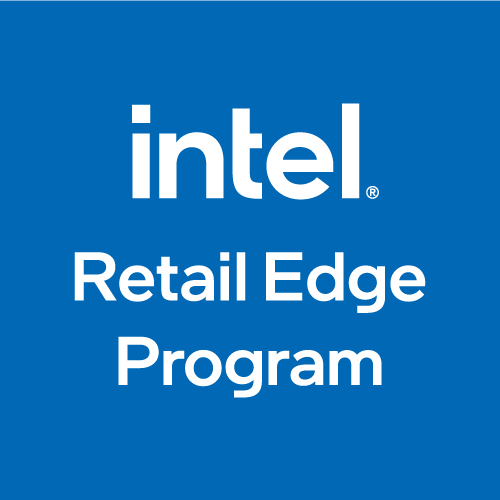4/2/24

Mobile learning refers to the delivery of educational content via mobile devices, such as smartphones and tablets, allowing learners to access training materials from anywhere at any time. This approach aligns with the modern lifestyle, where mobility and time efficiency are highly valued. In retail PC sales, where product features and consumer preferences evolve rapidly, m-learning offers a dynamic platform for keeping sales associates informed and adept.
Mobile learning is a game-changer in retail PC sales training, offering the kind of flexibility and accessibility that fits right into the busy lives of your associates. It's all about learning on the go, whether on the sales floor or the commute home and ensuring knowledge is always at their fingertips.
Flexibility and Accessibility
One of the foremost advantages of mobile learning is its flexibility. Sales associates can engage with training modules during downtime on the sales floor, on breaks, or at home, enabling continuous learning without disrupting the workflow. This anytime, anywhere access ensures that learning does not interfere with peak sales periods and maintains productivity.
Enhanced Engagement and Retention
Mobile learning platforms often incorporate interactive elements such as quizzes, games, and simulations. For PC sales associates, this could mean virtual simulations that mimic customer interactions or troubleshooting scenarios, making learning more engaging and practical. Engaged learners are more likely to retain information. This retention translates into improved sales techniques and product knowledge.
Real-time Updates and Feedback
The agility of mobile learning platforms allows for quickly disseminating updates related to new PC products, software, or sales strategies. Sales associates can receive immediate feedback on their learning progress through assessments, enabling timely intervention and support where necessary. This real-time capability ensures your sales team is always equipped with current knowledge and skills.
Mobile learning transforms retail PC sales training by offering sales associates flexibility and engagement opportunities. It enables a more informed, adaptable, and efficient sales team ready to meet the evolving demands of your technology-shopping customers. Here are essential points to remember when implementing mobile learning into your training program.
Tailor Content to Sales Needs
Effective mobile learning starts with content directly relevant to the sales associates' roles and responsibilities. Training modules should be concise and focused, covering product features, sales techniques, and customer service skills specific to your customers. Content can be segmented into bite-sized pieces, making it easier for learners to quickly digest and apply new information.
Utilize a Blended Learning Approach
While mobile learning offers plenty of advantages, it is most effective when used in a blended learning strategy. Combining m-learning with traditional training methods provides a comprehensive training experience. For instance, mobile modules can introduce product knowledge, while face-to-face sessions focus on soft skills like customer engagement and problem-solving.
Leverage Gamification and Social Learning
Incorporating gamification elements, such as points, badges, and leaderboards, can significantly enhance motivation and engagement among sales associates. Promotions or competitions based on sales targets or learning milestones create a fun and competitive learning environment. Similarly, social learning features like forums, discussion boards, or chat groups encourage collaboration and knowledge sharing and foster a supportive learning community.
Maintain Continuous Evaluation and Adaptation
The effectiveness of a mobile learning program should be continuously monitored through metrics such as module completion rates, assessment scores, and sales performance data. Feedback from sales associates can provide valuable insights into how the training impacts their work and how it can be improved. This ongoing evaluation allows for fine-tuning content and strategies to meet the associates' learning needs and retail business objectives.
To fully leverage mobile learning in retail PC sales, retailers must adopt strategies that facilitate learning and encourage continuous professional development.
Personalized Learning Paths
Creating personalized learning paths for sales associates can significantly enhance the effectiveness of mobile learning. By assessing individual learning styles, knowledge gaps, and performance metrics, training programs can be tailored to meet the specific needs of each associate. Personalization ensures learners remain engaged and motivated, as the content directly relates to their personal development and job performance.
Incorporating Microlearning
Microlearning involves delivering content in small, specific bursts that focus on one learning outcome at a time. This approach is particularly suited to the mobile format, where users may only have brief periods to engage with content. For PC sales associates, microlearning modules can cover topics such as the features of new Intel® processors, AI PCs, tips for upselling accessories, and handling common customer objections. The concise nature of microlearning allows associates to absorb and apply new information quickly, facilitating ongoing learning without overwhelming them.
Emphasizing Real-world Application
The ultimate goal of training is to enhance on-the-job performance. Mobile learning content should emphasize the practical application of knowledge and skills. For example, scenario-based learning modules that simulate real-life sales interactions can help associates refine their approach and technique. By incorporating real-world challenges and solutions, mobile learning becomes more relevant and valuable and directly contributes to improved sales outcomes.
Ensuring Accessibility and User-Friendliness
For mobile learning to be effective, it must be easily accessible and user-friendly. This means designing content optimized for mobile devices with intuitive navigation and responsive interfaces. Training platforms should be compatible with a variety of devices and operating systems, ensuring that all associates, regardless of their preferred technology, can participate in the training.
Fostering a Culture of Continuous Learning
Finally, the success of mobile learning depends on creating a culture that values continuous learning and professional development. Retailers should encourage and reward engagement with training programs. Leaders and managers play a crucial role in this process by serving as champions of learning by actively participating in training initiatives and promoting their benefits.
Leveraging mobile learning offers a pathway to more flexible, engaging, and effective training for your sales associates. By aligning training with the digital habits of your sales associates and the dynamic nature of PC sales, you can ensure your teams are knowledgeable, skilled, and ready to meet the needs of those shopping in your stores.
The Intel® Retail Edge Program is a global, industry-leading training program that delivers engaging learning content, helpful resources, rewards, and more that keeps sales associates knowledgeable and motivated. Our robust mobile app allows associates to access online and offline training content wherever they may be. Discover how the Program can elevate your sales team to new levels through training that is available 24/7 on multiple devices.
Notices and Disclaimers
© Intel Corporation. Intel, the Intel logo, and other Intel marks are trademarks of Intel Corporation or its subsidiaries. Other names and brands may be claimed as the property of others.
